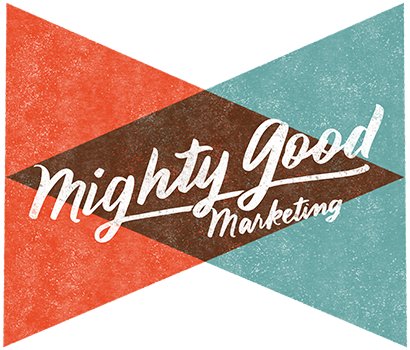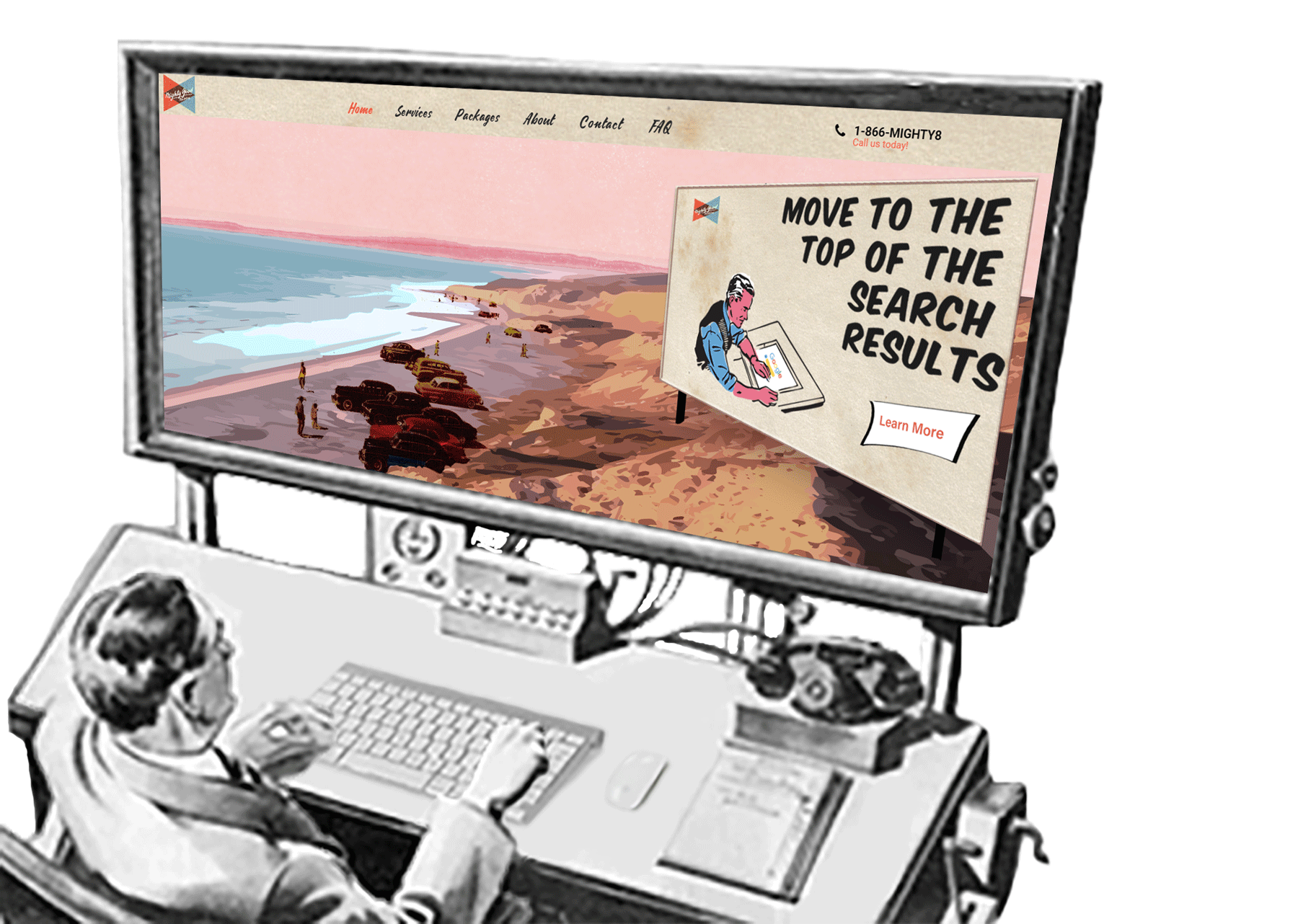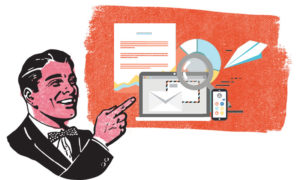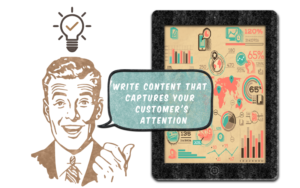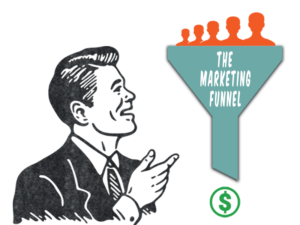What is Digital Marketing?
You may hear the phrase digital marketing and immediately think of some technical concept you’ll never be able to grasp, right? To be honest, it’s really simple. In a nutshell, digital marketing is a form of advertising that uses digital channels. If you want to get even simpler, think marketing and electronic devices.
That means, anything on and offline where you see digital ads falls into this category. Social media, websites, search engines, mobile apps, Google ads and other vehicles count – and guess what? They both matter.
Why Does Digital Marketing Matter?
Consider digital marketing as the equivalent of a traditional billboard, only better. Digital marketing helps the brand reach more audiences in shorter times. You can also have a variety of digital ads running at any given time for much less than a traditional billboard. In America, about 11+ hours are spent using electronic devices every single day. That’s a lot of eyes that have the opportunity to view your brand. Let’s take a look at a few online and offline digital marketing strategies to get a better understanding.
Search Engine Optimization (SEO)
Search engine optimization is changes that you make to your website, so that search engines put your website higher in the search results. In other words, when people search for a phrase related to your brand, your page is shown as a top result. This is very important, because the first five results on Google are known to get about 67% of all clicks. In reality, SEO encompasses much more than just tweaks to your website. Getting other websites to link to your pages is an especially important technique because search engines give a lot of weight to recommendations from other online sources. Local SEO are optimizations for businesses that want to focus on reaching people in the immediate area. Factors important to local SEO include accurate business information in online directory listings and getting frequent customer reviews. SEO is very effective in marketing your business online and increases the search visibility of businesses.
Content Marketing
Content marketing is providing credible, authoritative resources on topics that interest potential customers. It includes things like educational articles, podcasts, videos, info-graphics, newsletters and entertaining stories. It is part of a long-term strategy that focuses on building a relationship with your customers based on material that is relevant to them. By answering questions and providing easy-to-understand images and articles, potential customers will discover your brand. Continuing to provide valuable information will build an interested audience. Then, out of this interested audience, you will find it easy to get new customers and build revenue with existing customers. This content is offered free-of-charge in places where your customers look for it – on your website, on blogs, on social media and anywhere else on the internet.
Inbound Marketing
Inbound marketing is a type of content marketing that focuses on the buying process. It focuses on providing your customers with information to help them become informed buyers. It is an art because the best inbound marketing provides the information without interrupting or selling them. Essentially, your content is what makes them choose your brand over someone else’s. There are 4 basic stages in the buyer process, awareness, consideration, decision and advocacy. In the first, the buyer becomes aware that there is a solution that solves a problem or meets a need they have. In the second stage, the buyer considers whether they want to buy the product or service. At this point, they want to know more about the product and compare it to similar products. If your brand succeeds in addressing a buyers’ concerns and answering their questions, they will decide to buy. But, the job isn’t done there. High quality service and great experiences will give customers reasons to rave about your brand, and nothing beats great reviews.
Social Media Management
Brands often use Instagram, Facebook, Twitter, LinkedIn and other platforms to reach customers. While this may sound easy, having a solid social media management strategy is more difficult than you may think.
Social media posts need to capture the attention of your audience or they’ll scroll right by. The topic choice, image choice, and word choice are all critical to capturing people’s attention. To choose the right topic, you need to understand your audience and do effective research in current trends. A great image supports the message, emphasizing and illustrating and bringing to life the subject of the post. The words should be concise and easy-to-read. In the few seconds it takes to scroll past a post, your customers need to “get it” enough to pause and take in the entire message.
Not only do you need great posts, but you need to provide them frequently and they need to promote company values and display the human side of your brand. People want to know who’s behind the brand and look to social media to connect and interact. So, great posts grab the customer’s attention, but responding to comments and participating in discussions is the real goal to connect and build trust with your audience.
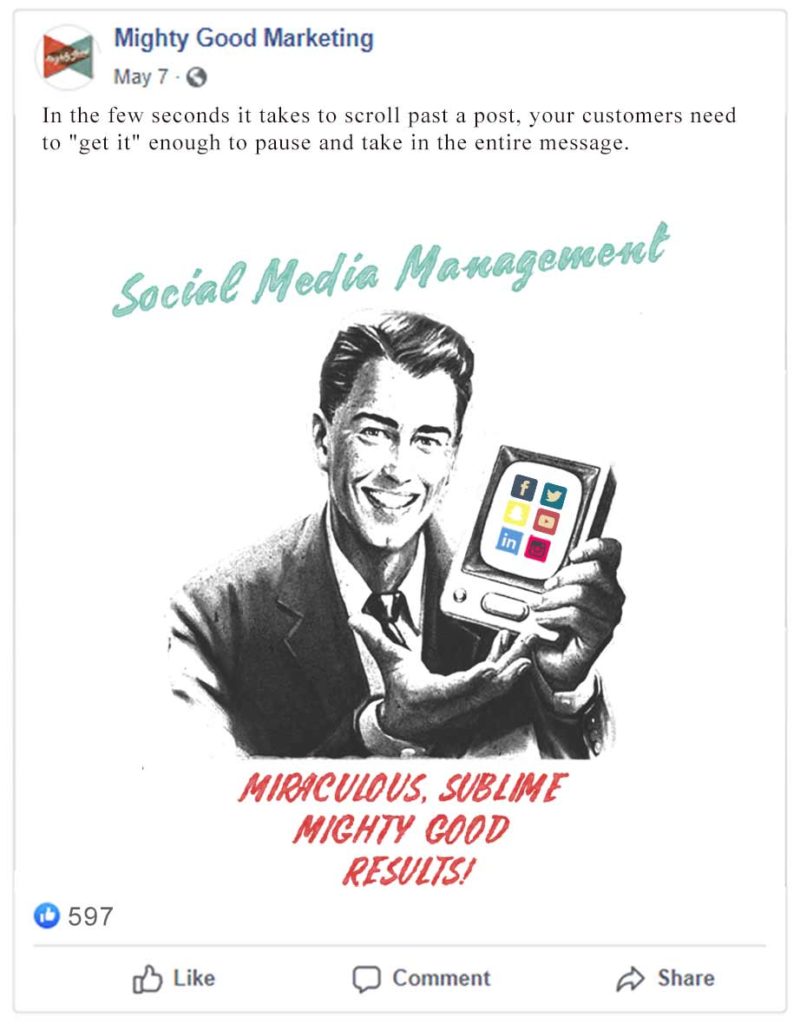
Paid Search Advertising
Pay-per-click (PPC) and paid search advertising are quite similar. You may hear both terms at different times. Paid search advertising lets businesses advertising in sponsored listings of a search engine or site. You pay when the ad is clicked, or when the ad is displayed. There are times when a phone contact is generated as well. This is one of the best ways you can target consumers who are actively searching for a product or service like yours.
To understand paid search advertising, it’s best to understand what happens when your information shows up on a search engine results page (SERP). For instance, someone types in a keyword that is relevant to your brand. They will most likely see web page names appearing at the top and bottom of the search engine results page. Although they look like an organic listing, you’ll see some indication that they are actually ads. If you’ve ever heard of Adwords, this is what paid search advertising is.
Blogging and Influencer Marketing
In today’s digital space, people place more emphasis on what others say about a product rather than the brand itself. Consumers today tend to think brands are biased, so they look to outside sources to get reliable information about a product. Bloggers are people that have built an audience by providing content. Their content teaches and provides commentary in an entertaining way. Businesses can tap into an existing audience when bloggers mention their brands. By offering their products to bloggers, business can encourage them to review the products. Like bloggers, influencers also have their own audience that trusts their endorsements. Influencers, however, are either celebrities or people recognized for their success in a field.
Email Marketing
Email marketing is using email to send different types of content to a list of subscribers. This content has many purposes – such as nurturing leads, generating traffic to your site, or signing up for content. People rarely buy a product the first time they hear about it. Between hearing about a product and buying, they need to have questions answered and decide that the product is valuable to them. Ongoing exposure to relevant information nurtures the lead until they reach a decision point. Email is a great way to provide information on a regular basis, as it is a direct line of communication. It also offers you a way to personalize the information by using their names and presenting information relevant to their interests. Brands also use email to stay in touch with existing customers. People that have bought before are more likely to buy again than people who have never bought from your brand. The ultimate goal is to create top-of-mind awareness, speaking to the customer on how you solve their problem or meet their needs.
Digital Marketing Assets
As you put together your strategy, consider the marketing tools you want to use online. One of the great things about digital marketing assets is that you never run out of ideas and tactics. Some of these include your website, video content, infographics and other images, your written content, online tools and products, social media pages, reviews and more. Although most of your digital marketing assets will be under one of these categories, there are always new and inventive ways to engage with your customers in the digital space.
So, does digital marketing actually work? Absolutely! When done correctly, it can have tremendous returns. The great thing about digital marketing is … it levels the playing field. It doesn’t matter if you’re a mom-and-pop store or a worldwide brand, the visibility and engagement can be the same. All it takes is thought, strategy and execution. The rest is digital magic … that’s Mighty Good!
Might Good Marketing is a digital marketing agency located in Flowery Branch, GA and serving the metro-Atlanta area. Got a question about digital marketing or interested in using digital marketing to promote your business? Contact us today at 1-866-935-5699 or fill out our form to schedule a free consultation.
